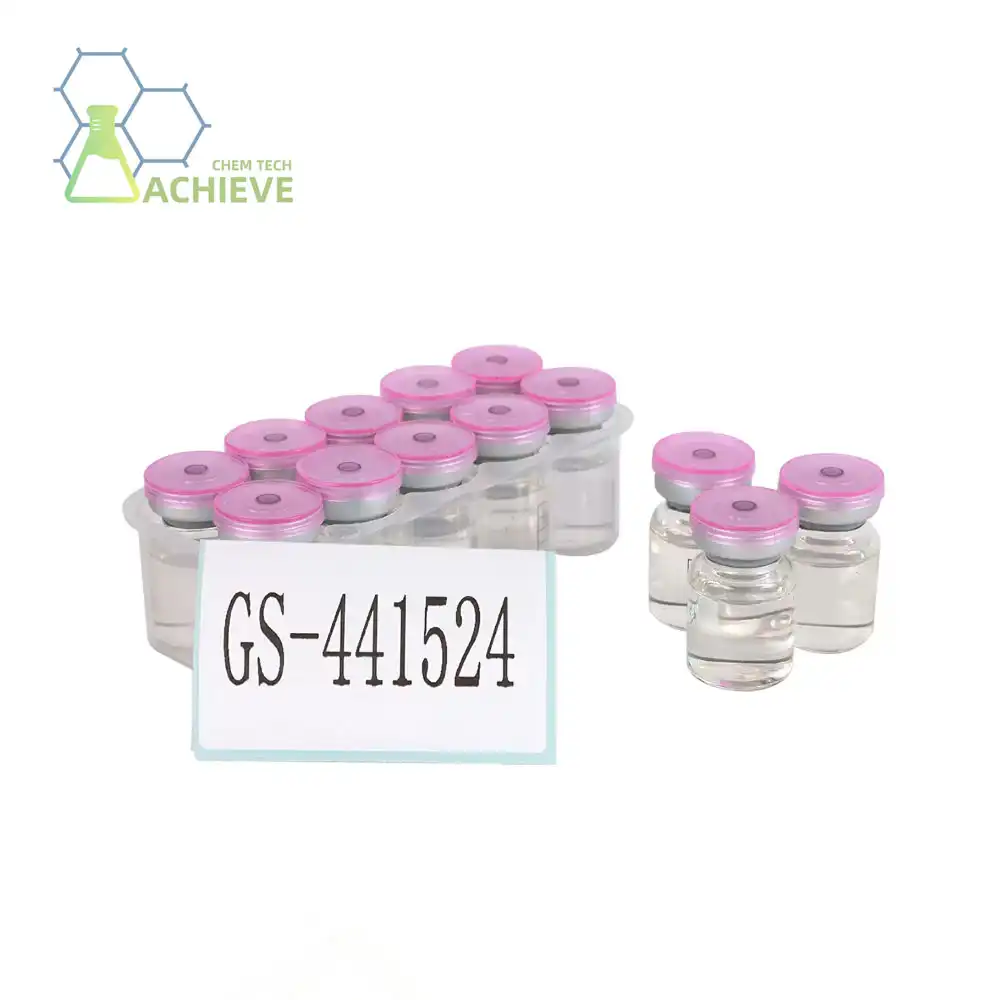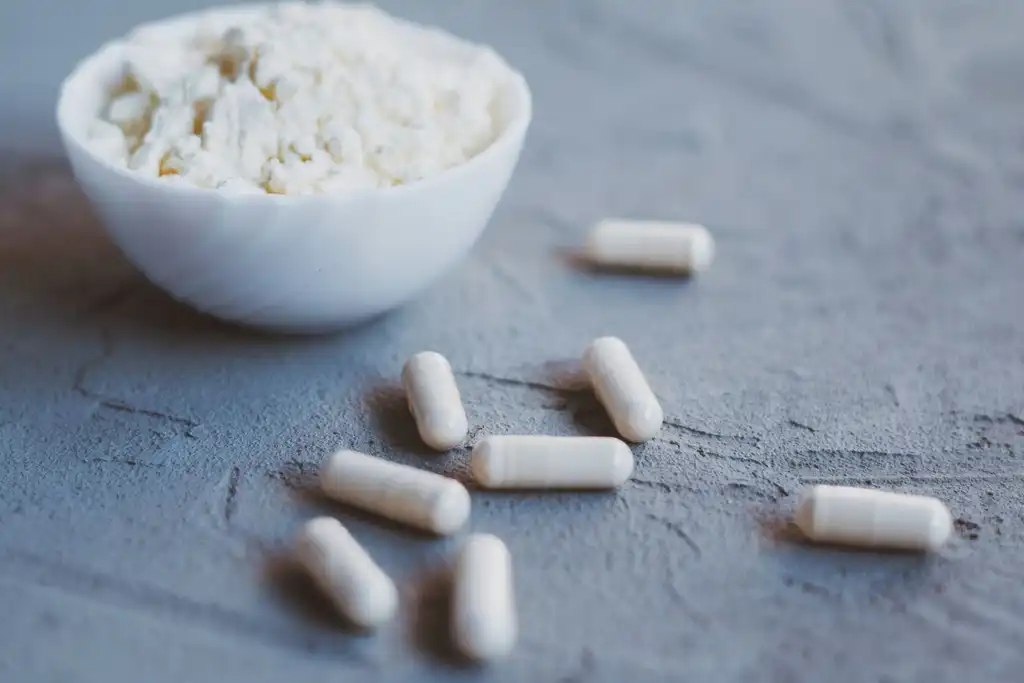Why is spermidine important to humans?
Spermidine, a naturally occurring polyamine, has garnered significant attention in recent years due to its potential impact on human health and longevity. This remarkable compound, found in various foods and produced by our bodies, plays a crucial role in numerous cellular processes. In this article, we'll explore the importance of spermidine to humans, delving into its evolutionary conservation, essential cellular functions, and intriguing lifespan correlation studies.
Product: https://www.bloomtechz.com/oem-odm/tablet/spermidine-tablets.html
|
|
|
|
Evolutionary conservation
The significance of spermidine in human biology is underscored by its evolutionary conservation across various species. This polyamine has been present throughout evolution, from simple organisms to complex multicellular beings like humans. The fact that spermidine has been preserved across such a vast evolutionary timespan suggests its fundamental importance to life itself.
Researchers have found that spermidine is present in virtually all living organisms, from bacteria to plants and animals. This ubiquity across different life forms indicates that spermidine plays a vital role in basic cellular functions that are essential for survival and reproduction. The conservation of spermidine-related genes and metabolic pathways further emphasizes its evolutionary importance.
One of the most intriguing aspects of spermidine's evolutionary conservation is the spermidine effect on cellular stress response mechanisms. Throughout evolution, organisms have developed various strategies to cope with environmental stressors, and spermidine appears to be a key player in these protective mechanisms. Its ability to promote autophagy - a cellular "cleaning" process - has been conserved from yeast to humans, highlighting its enduring significance in maintaining cellular health.
Moreover, the spermidine biosynthesis pathway has remained remarkably similar across different species. This conservation suggests that the ability to produce and regulate spermidine levels has been critical for survival throughout evolutionary history. The fact that humans have retained these pathways underscores the continued importance of spermidine in our physiology.
Essential cellular functions
Spermidine's importance to humans becomes even more apparent when we examine its role in essential cellular functions. This polyamine is involved in a wide array of processes that are fundamental to cell survival, growth, and overall health.
|
|
|
One of the most crucial functions of spermidine is its role in protein synthesis. It helps in the initiation and elongation stages of translation, the process by which genetic information is used to build proteins. By facilitating efficient protein production, spermidine contributes to cellular growth, repair, and maintenance of vital functions.
Another critical function of spermidine is its involvement in DNA stability and replication. It binds to DNA, helping to maintain its structure and protect it from damage. This protective role is particularly important in rapidly dividing cells, where accurate DNA replication is essential. By safeguarding genetic material, spermidine helps prevent mutations and supports overall genomic stability.
Spermidine also plays a significant role in cellular membrane function. It interacts with phospholipids in cell membranes, influencing their fluidity and permeability. This interaction is crucial for maintaining proper cellular compartmentalization and facilitating the transport of molecules across membranes.
Perhaps one of the most intriguing functions of spermidine is its role in autophagy. Autophagy is a cellular recycling process that removes damaged or dysfunctional components, promoting cellular health and longevity. Spermidine is a potent inducer of autophagy, stimulating this crucial "housekeeping" mechanism. By promoting autophagy, spermidine helps cells maintain their functionality and resist the accumulation of harmful cellular debris.
Furthermore, spermidine is involved in the regulation of various ion channels. These channels are crucial for maintaining proper cellular electrolyte balance and are involved in numerous physiological processes, including nerve impulse transmission and muscle contraction. By modulating ion channel function, spermidine contributes to the proper functioning of various organ systems.
Spermidine also plays a role in cellular differentiation and embryonic development. It's involved in the processes that guide cells to specialize into different types, which is crucial for the formation of complex tissues and organs. This function underscores spermidine's importance not just in maintaining cellular health, but also in the very formation of our bodies.
The compound's involvement in immune function is another aspect of its importance to humans. Spermidine has been shown to modulate various aspects of the immune response, including T-cell activation and proliferation. This immunomodulatory role suggests that spermidine may be important in maintaining a balanced and effective immune system.
Lifespan correlation studies
|
|
|
The importance of spermidine to humans extends beyond its roles in basic cellular functions. Recent research has uncovered intriguing correlations between spermidine levels and human lifespan, sparking interest in its potential as a longevity-promoting compound.
Several epidemiological studies have found a positive correlation between dietary spermidine intake and increased lifespan. For instance, a large-scale study involving over 800 participants found that those with higher dietary spermidine intake had a lower risk of all-cause mortality. This association remained significant even after adjusting for various confounding factors, suggesting a robust link between spermidine consumption and longevity.
Animal studies have provided further evidence for spermidine's potential lifespan-extending effects. Research in various model organisms, including yeast, flies, and mice, has consistently shown that spermidine supplementation can increase lifespan. In some cases, the lifespan extension was quite substantial, with spermidine-treated animals living up to 25% longer than their untreated counterparts.
The mechanisms underlying these lifespan-extending effects are still being elucidated, but several promising theories have emerged. One of the primary hypotheses centers around spermidine's ability to induce autophagy. By promoting this cellular cleaning process, spermidine may help cells maintain their functionality and resist the accumulation of damage that typically occurs with aging.
Another potential mechanism involves spermidine's antioxidant properties. Oxidative stress is a major contributor to cellular aging, and spermidine has been shown to have potent antioxidant effects. By neutralizing harmful free radicals, spermidine may help protect cells from oxidative damage, potentially slowing the aging process.
Spermidine's role in DNA stability and repair may also contribute to its longevity-promoting effects. As we age, our DNA accumulates damage that can lead to cellular dysfunction and various age-related diseases. By supporting DNA integrity, spermidine may help maintain genomic stability and cellular health over time.
Interestingly, studies have also found that blood spermidine levels tend to decrease with age in humans. This decline correlates with the onset of various age-related conditions, suggesting that maintaining adequate spermidine levels might be important for healthy aging. Some researchers have proposed that this age-related decline in spermidine levels might contribute to the aging process itself and that restoring these levels could potentially slow or even reverse some aspects of aging.
It's important to note that while these lifespan correlation studies are promising, they do not definitively prove that spermidine supplementation will extend human lifespan. Much of the research has been conducted in animal models or through observational studies in humans, and more rigorous clinical trials are needed to confirm these effects in humans. However, the consistency of findings across different species and study types provides a strong rationale for further investigation into spermidine's potential as a longevity-promoting compound.
The potential spermidine effect on lifespan has led to growing interest in spermidine supplementation. While spermidine can be obtained through diet, some researchers are exploring the potential benefits of spermidine supplements. These supplements aim to boost spermidine levels beyond what might be achievable through diet alone, potentially amplifying its health-promoting effects.
However, it's crucial to approach the topic of supplementation with caution. While spermidine is generally considered safe, more research is needed to determine the optimal dosage and long-term effects of supplementation in humans. As with any potential health intervention, it's important to consult with healthcare professionals before starting any new supplement regimen.
Conclusion
The importance of spermidine to humans is multi-faceted and profound. From its evolutionary conservation to its essential cellular functions and intriguing correlations with lifespan, spermidine plays a crucial role in human health and biology. As research in this field continues to advance, we may uncover even more ways in which this remarkable compound contributes to our well-being and longevity.
Are you a pharmaceutical company looking to leverage the potential of spermidine in your products? Or perhaps you're in the specialty chemicals industry and interested in exploring spermidine's applications? Look no further than BLOOM TECH. With our state-of-the-art GMP-certified production facilities and expertise in various chemical reactions and purification methods, we're perfectly positioned to meet your spermidine-related needs. Whether you require bulk quantities for long-term contracts or specialized formulations, our team is ready to assist you. Don't miss out on the opportunity to partner with a leader in the field. Contact us today at Sales@bloomtechz.com to learn more about how we can support your spermidine-related projects.
References
1. Eisenberg, T., et al. (2009). Induction of autophagy by spermidine promotes longevity. Nature Cell Biology, 11(11), 1305-1314.
2. Madeo, F., et al. (2018). Spermidine in health and disease. Science, 359(6374), eaan2788.
3. Kiechl, S., et al. (2018). Higher spermidine intake is linked to lower mortality: a prospective population-based study. The American Journal of Clinical Nutrition, 108(2), 371-380.
4. Minois, N. (2014). Molecular basis of the 'anti-aging' effect of spermidine and other natural polyamines - a mini-review. Gerontology, 60(4), 319-326.

Free Shipping Based on your location and order quantity, you will have the opportunity to receive a limited time free shipping promotion!

BLOOMTECHZ










